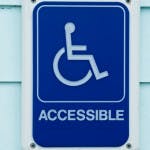Q: Is leasing our home as a disabled group home a plausible option?
We own a home in East Hartford and are considering moving south, we are weighing our options and are wondering about possibly leasing our home as a group home, possibly the disabled, would this be a plausible option? If so, what would we have to do to get more information on this?

![]()
Great question. Depending on the construction of your home, it is absolutely a possible option.
Currently, Connecticut has about 900 homes serving 4,000 individuals with developmental disabilities, substance abuse issues, traumatic brain injuries and other handicaps. There are certain considerations however, unique to serving as the landlord for these kinds of facilities.
Zoning
Want to Find a Local Property Manager?
First, take a look at the kind of disabled population that may be living in your home. Federal and state laws provide broad anti-discrimination protections to most disabled individuals, but usually not to substance abuse cases. Zoning laws may restrict you from serving this population in your neighborhood. Housing registered sex offenders could also be a problem, too, and possibly cause your liability insurance premiums to rise.
You should also be familiar generally with Connecticut law regarding zoning for residential facilities for the disabled. See Sec. 8-3e of the Connecticut General Assembly code. Provided your residence will house six disabled individuals or fewer, and the disability is something other than substance abuse or is generally covered under the Americans with Disabilities Act, you should have little trouble as long as your home is already zoned for residential use – as long as there’s not another similar facility already within 1,000 feet.
Americans With Disabilities Act
Unless your home was already built with accessibility squarely in mind, expect to have to make some renovations to make your home extremely handicap-accessible. At a minimum, you’ll want to consider these costs:
Widening doors to accommodate wheelchairs
Wheel-chair accessible toilet and bathing facilities
Wheelchair ramps and lifts wherever there are stairs
Handrails in bathtub/shower areas and in hallways
Carpeting or other fall-safe flooring.
You may need to upgrade your kitchen so workers can prepare meals for up to six individuals (or more, if your home is large!) plus themselves.
Facility Requirements – Developmentally Disabled (Mentally Retarded):
• Certificate of appropriate insurance coverage (your existing homeowner’s policy won’t cut it).
• You should also demand your tenant operating the group home provide and maintain substantial insurance coverage of their own. At a minimum, whoever is renting your property should retain the following kinds of insurance coverages:
Sexual abuse liability
Professional liability or errors & omissions insurance
Workers’ compensation
Commercial auto liability
Accident coverage
Employment practices liability
General liability
Excess liability (including abuse and professional)
• A bacteriological report, if you use a private water system
• Public health official’s report for septic systems (other than the city sewer system)
• Each individual served must have at least 80 square feet in single bedrooms or 60 square feet in multiple bedrooms.
If you are serving the developmentally disabled community, the Connecticut Department of Mental Retardation will inspect your property before granting the license, and at least every two years after that. Your legal and regulatory references are CGS § 17a-227 and DMR Regs. § 17a-227-1 et seq.
Other Populations
For Department of Children and Families group homes and other child care facilities, consult
Connecticut
Agencies Regulations §§ 17a-145-60 et seq.
In-ground pools have to be fenced for these kinds of homes.
Insurance Considerations
Naturally, when you convert a private residence to use as a group home, your potential liability goes way up. Your standard home insurance policy is no longer adequate or appropriate. You’ll need landlord insurance at a minimum, and you may want to discuss specialty coverage with an experienced commercial insurance broker.
In addition to your property insurance, you’ll also want to have a robust umbrella liability coverage in place, possibly $5 million or even more. This protects you against judgments and settlements involving injuries to tenants or workers that are over and above those covered by your tenants insurance and your own property insurance.
Naturally, your rent will have to cover the cost of renovations, plus the additional insurance you’ll have to carry, so do your homework prior to inking a deal with a group home operator.
Author Bio
Writing about personal finance and investments since 1999, Jason Van Steenwyk started as a reporter with Mutual Funds Magazine and served as editor of Investors’ Digest. He now publishes feature articles in many publications including Annuity Selling Guide, Bankrate.com, and more.